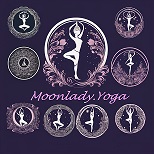
Science, with its empirical approach, has attempted to study the Self. However, it has faced challenges in locating what exactly the Self is. What was initially thought to be the Self often turned out to be something else entirely. As a result, the study and search for self-realization in the realm of science have remained unfruitful and ongoing. Despite its advancements in understanding the physical world, science has yet to fully grasp the nature of the Self.
Metaphysics’ Many Perspectives on the Self
Metaphysics, on the other hand, has approached the Self from various angles, assigning it different names and descriptions. Philosophical texts are filled with attempts to define and understand the Self. However, these studies have proven to be never-ending, as different perspectives continue to emerge. Metaphysics has provided valuable insights into the nature of the Self, but a definitive understanding remains elusive.
Religion’s Approach to Self-Realization
Religion often considers the Self to be of lesser importance compared to God. The study and knowledge of the Self are often left to dogmatic rituals and prayer. While religion offers a path to self-realization, it can sometimes be obscured by rigid beliefs and practices. The true essence of the Self may be overshadowed by external rituals, limiting the depth of self-realization that can be achieved through religious practices alone.
Yoga’s Practical Path to Self-Realization
Yoga, in contrast, offers a practical and direct approach to self-realization. It aims to eliminate obstacles that hinder the study of the Self and prevent it from revealing its true form. By focusing on direct and subjective application, yoga allows for concrete, positive and non-indirect experiences of self-realization. Through the practice of yoga, one can transcend superficial knowledge and delve into the depths of the unknown aspects of the Self.
The Universal and Eternal Quest for Self-Realization
The pursuit of self-realization is a universal and eternal quest. While knowledge gained through study is objective, self-realization is subjective and deeply personal. Throughout history, civilizations and cultures have strived to understand and evaluate the true essence of the Self within each individual. The realization that the Self is not the physical body or the mind, but something eternal and unchanging, has fueled this intense and meticulous pursuit.
The Imperfect Nature of Theoretical Knowledge
Theoretical knowledge of the Self, obtained through analytical studies and indirect cognition in metaphysics and science, may appear imperfect and unsatisfactory to the practical yogi. This knowledge lacks the direct and intimate contact with the object of study that is essential for true self-realization. The yogi seeks a deeper and more profound understanding of the Self, one that goes beyond theoretical concepts and embraces direct experience.
The Limitations of Mysticism and Empirical Methods
Throughout history, the pursuit of self-realization has taken various forms, including science, metaphysics, religion and yoga. While mysticism has been successful and acceptable to yogis as a means of self-realization, it often lacks a clear path for others to follow. Yoga, however, acknowledges the limitations of both metaphysical analysis and mystical experiences. It proposes a unique approach that combines intellectual analysis, scientific exactitude and intuitive perception. This practical process of self-realization, known as kriydyoga, can be equitably termed yoga technology.
The True Nature of Yoga Self-Realization
The yogin’s quest for self-realization goes beyond mere knowledge of the self or abstract realizations of being Brahman. The yogin seeks concrete realization that transcends doubt and uncertainty. Yoga technology draws inspiration from ancient Upanishadic concepts of self-realization, emphasizing the need to see, hear, ponder and meditate on the self. It encourages direct perception of the self, which goes beyond speech, reason and objective experience. The yogin employs the metaphor of seeing the self “as if with a lamp,” highlighting the practice of inner gaze or antaradristi. By avoiding indirect methods, yoga technology aims for positive self-realization, establishing direct contact with the self and leaving no further doubts.
In unity,

Leave a comment